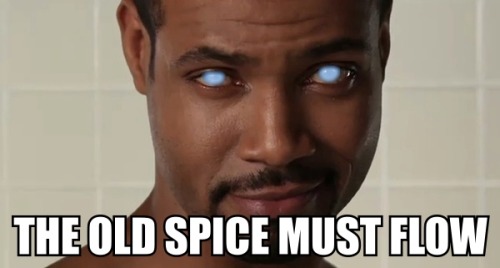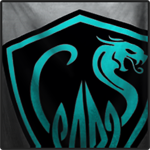DOUBLE EDIT: THIS THREAD IS BOTH 6 YEARS OLD, AND COMPLICATED.
Reader comprehension is advised
Edit: Now with 100% More French!
This is for all the times you've looked at your minimap and seen the entire team huddled together like a flock of frightened sheep while the enemy team advances as a unit and swarms you under. This is for every time you've died after heavy combat and popped in to spectate an undamaged brawler plinking away with his one long-range weapon. This is for all the times you've seen an isolated Victor running along your flank, and couldn't get anyone big enough to stop him to leave cover and try. This is for all of us, Mechwarriors - Timidity is Not a Tactic.
Now, I enjoy MWO - enough to write guides for it, in fact. But if I had to identify the number one problem I run into in the game, it wouldn't be a broken weapon system, an overpowered or underpowered 'Mech, or even matchmaker issues and hit registration. No, the biggest issue I see with MWO is more serious - the game trains cowardice.
The process by which it does this is simple, psychologically speaking. People learn by interpreting the feedback provided by their actions. If they get punished for doing something a certain way, they will tend to try other ways to do things, and deferred punishments and rewards are far less effective at modifying behaviors. The problem in MWO is that the rewards for certain good practices (such as taking damage in order to get close or set up a cross fire) are deferred, but the punishment - the visceral negative feedback of damage alarms, missile warnings, and incoming weapons fire - is immediate, particularly if you make an error. This leads us to the major problem affecting PuG gameplay:
Vicious Cycle. The combination of deferred rewards and immediate punishments, combined with the lack of communication typical to PuGs and the dominance of long-range weaponry, sets up a vicious cycle - what is called in biology a positive feedback loop. Players receive immediate punishment from exposing themselves to damage, even for good cause, and for making errors. The rewards for many actions, on the other hand, are not immediately given, and can be precluded entirely by the actions of your team - if they fail to support you, you can do the right thing for nothing. This encourages players to play more cautiously, letting other players take the risks; thus causing other players to learn that PuGs can't be trusted to watch their backs; which encourages them to play more cautiously, and so on; the process feeds on itself in a vicious cycle - a positive feedback loop.
Timidity as a Tactic: Thus we have the problems which plague so much of the PuG environment. Players will run to the rim of the caldera in Caustic Valley, then stop and refuse to move or expose themselves if anyone is shooting at them; they'll rush to the entrance to the "PuG Zapper" in Terra Therma, then cluster and back up if they take any fire; they'll camp whatever cover is available where they first take incoming, and refuse to move even when desperate warnings and cries for help are issued over coms - I know, I've been the poor sucker getting Julius Caesared on the flank. This is a major component of the current PuG metagame; players only feel like they should be shooting when effective return fire isn't possible for the enemy. When faced with enemy action, people's first response is no longer an immediate recourse to lethal weaponry - it's to hide and preserve their armor. They're not doing it because they're stupid, nasty, dirty little Puggles; they're doing it because the game trains them to be that way. Most PuG matches devolve into a waiting game where everyone scatters out to find their favorite hiding rock and start getting liquored up for the end of the match, when one side gets an advantage and finally starts to close.
Hope for the Battlefield: This doesn't mean that we're all doomed to camp-and-hide tactics unless you're playing in the group queue. Humans are the only species on the planet which relies on learned behaviors as its primary survival strategy - we can override the conditioning of our environment by making choices as rational agents. To this end, I have these suggestions:
- Support Your Teammates. Always support the team, even when they're being stupid. Brawlers sometimes get bored, and snipers are often really, really scared of enemy fire. But if the four brawler/scouts on your team run in alone, it's bad - just like when the snipers refuse to leave their favorite spots in order to help repulse or commit to a push. Either of these options is bad, but leaving half the team unsupported is critical - and you can't control the rest of the team - just yourself. No matter how stupid you know they're being, support your teammates no matter what. Even a bad plan, executed now and with violence of action, is preferable to letting your teammates die in a pyre of foolishness and shame without at least getting something out of it. Give advice if there's time, but get to where you can participate in the action - you'll mitigate the damage if they're being stupid, and avoid sabotaging your team if they're not.
- Keep Moving. You may be a long-range mech - in fact, it's likely these days - but staying put too long allows you to be outmaneuvered (see Appendix A) and leaves you vulnerable. Additionally, if you have any brawlers on your team, they can help you better if you move with them - and not moving often makes them unable to help you, because of enemy supporting fire.
- Damage Is Like Water. You can drown in the river, but getting a little wet won't kill you. The game inadvertently conditions you to react to any damage as if it is an immediately lethal threat - remember that in reality, durability is just a resource, no different from your heat and ammo. It's important to use that resource wisely, but - particularly for Heavies and Assaults - it's there to be used. In fact, sometimes the best durability you can make use of is someone else's: if the enemy is shooting at your teammate, as a practical matter they cannot shoot at you at the same time. Thus, if you see a large volume of fire coming at your Friendly Neighborhood Atlas, often the best thing you can do is use that window to return fire at the enemy while they focus on killing your friend.
- Share Armor. This is related to the previous two points, but is vital enough that it warrants its own bullet point. If your team is fighting the enemy team (even in a defensive position,) it is always better to expose more people to enemy fire. This is true even if the enemy is focusing their fire to kill your individual teammates as quickly as possible - in fact, it's especially true then. Your enemies simply cannot shoot effectively at two people at once; the human brain isn't set up that way, even if the 'mech could support the logistics. What this means is that the more of you the enemy has to shoot at, the better off you all are. Enemy fire will be spread amongst more targets (particularly in the solo matches that concern us,) and less effective overall. Share armor when it all hits the fan - you'll always be better for it.
- Learn to Scout. These days, lights have it hard. With the fixes to hit registration and the increased prevalence of LRMs and long-range weapons, it's very hard to do the scouting part of your job - to the point that some players (I'm looking at you, Firestarter pilots) will actually refuse to leave the team until the main fight starts. This is a mistake. You don't have to be running around on the other side of the map - and shouldn't be, if you can't survive alone out there. I get that; but you can and should still be out on the flanks watching for the enemy and relaying information to your team; use long sight distances instead of proximity to the enemy to look for them. Ditto with ECM snipers who never bother to tell the team what they're seeing from their semi-invisible vantage points. That being said, scouting is everyone's job, to a certain extent - if you see something important, call it out if you can. It's important. Giving the team that information allows them to make better judgements about what to do, and will help to break the positive feedback loop of excessive caution.
- Use Your Words. Get a microphone headset and use it. The cost is trivial compared to the price of a computer that can run the game, and voice communication is the most powerful tactical tool ever given to gamers. Don't chatter, and don't harangue your teammates - you only really need to call out short alert messages - like, "Three heavies in D3," or "Assault 'mechs behind us!"
At the end of the day, you should be cautious up to a point - recklessness is the courage of a fool, after all. But you have to keep in mind that, just as you don't go to a knife fight without expecting to be cut, you can't go to a 'mech fight and not expect to be blasted apart and melted down into commemorative paperweights from time to time. The most important thing you can do is cooperate with your team, no matter what your build - maneuver for a flank shot with your sniper/missile build; being a "light killer" doesn't mean you can't scout so long as you stay close by the main body. If you can't focus fire from your position, you need to move, and if the big 'mech(s) are engaging, go in with them. Don't be stupid, but don't let fear (or tactical tunnel-vision) restrain you from helping the team. As one of the Fracking Atlas pilots, I do not mind dying a horrible death as long as the team backs me up - because teamwork, not fear, is the true key to survival.
Timidity is not a tactic.
Appendix I: The problem with camping
NOTICE! This guide has undergone major revisions as of May 9th, 2014! The original post can be found here.
And finally, I simply must recommend these Wonderful Tactical Illustrations, in whose creation I had no hand, but which I greatly admire, both for their simplicity and for the quality of their advice. Thank you all for reading through my
Edited 16AUG2016: added "Share Armor," and updated throughout to account for the availability of reliable VOIP.
Edited by Void Angel, 07 November 2022 - 10:13 AM.




























